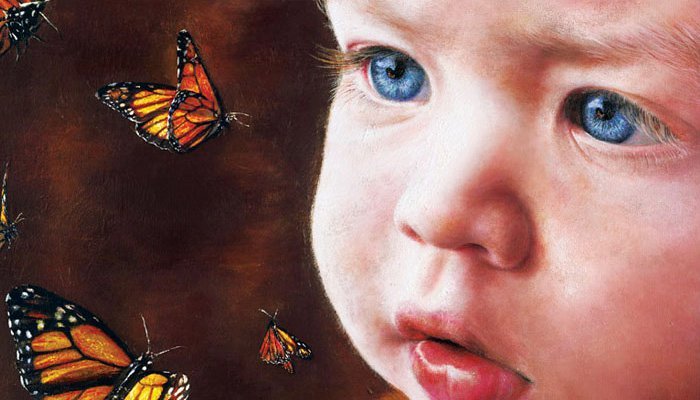
“If we experienced life through the eyes of a child, everything would be magical and extraordinary. Let our curiosity, adventure and wonder of life never end…” Painting “Wonder” by Foreli’s daughter Akiane when she was 13 years old. (2008) © Copyright www.akiane.com
Foreli Kramarik-Blinstrubaitė is an author, speaker, counselor, educator, editor, anthropology researcher, entrepreneur, cultural adviser, composer and the mother of five children. I have been secretly admiring Foreli’s work and insights over the last few years and I think that no page can call itself Wildish Wonder without her! Below is a translation of our video conversation (in Lithuanian) in which Foreli shares her thoughts about motherhood, role of parents, children’s education and recognition of talents. More information about her can also be found on her website. (Note from Foreli: the translation of the transcript is approximate.)
Asta: Hello, Foreli. I am very very happy that you agreed to chat with me today. I have been following your story and your work for a while and I am really happy that today you can spare a few minutes for our conversation.
Foreli: Hello, Asta, it’s wonderful to speak to someone from Spain, I was there recently. Spain is beautiful and I can understand why you live there.
Asta: Thank you, thank you very much. Perhaps when you visit it next time, we will meet. Now I wanted to briefly introduce you to those who may not be following your work as closely as I do. So I would like to briefly share what your website – Foreli Academy – says about you – that you are an author, speaker, counselor, educator, editor, anthropology researcher, entrepreneur, cultural adviser, composer and the mother of five children. For me that last job description – mother of five children – seems just wildishly wonderful. As I have mentioned, I have a daughter who is 11 months old, and for me to hear that someone can have five children and yet successfully continue with their work and have a wonderful career – it’s just amazing. So I was curious, what do your five children do at the moment? What are they up to?
Well, they are all occupied with very different things because my children’s age is very different. From 9 years old to 26, and they are all busy. The oldest one – he travels and at the moment is reorienting to a new occupation online. He is a computer scientist and works with computer linguistics. My second son used to be a chef but now he is also reorienting and works with us in our art gallery. But his huge interests are history, films, he wants to be a film director and he is basically going into that direction towards filmmaking. But he is interested in many things. My third child, daughter Akiane, is a painter. She has somehow moved away from poetry and instead of that is now going for film directing. She is very interested in filmmaking, photography, and is a painter. She works very intensively, travels, films, photographs. Now we are finally back after long travels all over the world, and it is more quiet, she has her own studio and can work more. Ilia – he is fifteen years old. Even though he is known mostly for something that does not interest him at all – philosophy. He is that person, I captured what he dictated and about thirty books were published, we have now finished the editing work. He is more known for that even though he is interested in yoga, history, ceramics. He is a very quiet child, more pensive, very sweet child of my heart, we are very close. The youngest one, Aurelius, is interested in everything related to architecture. Everything that has to do with ceramics, clay, art, paper art, like origami. He is also a boy of my heart. Love, friendship – I think these are the main callings of my two youngest children, to be with the people. They are very very sweet. I am sorry that I have expanded on this, I should have kept it shorter.
Asta: Thank you, thank you, it is really very interesting, I just wanted to find out more about their interests. Foreli, I have read that all five of your children were born at home and quite early on started developing, walking, crawling. For me this time period, the first year of a baby’s life, is very interesting as, obviously, it’s the current phase of my daughter’s life. It would be really interesting for me to find out how you approached this whole first phase of your babies’ lives. What was your approach, what rituals did you have with them? How did you view them and what factors do you think helped them develop so beautifully?
Foreli: I think that one of the main things that I did which I would repeat now and would also do with my grandchildren in the same way without changing – I didn’t separate myself from them. I was always with them, even when I had to work for a while because it was necessary, we had no money. I was always attached to them. Somehow I found space and time to be with them always and I never separated myself from them. And I used to teach them from very early on. Even when they were six-month-old babies, I taught them to collect their toys. I involved them in my activities, even when they were still crawling. And I really made a lot of effort to teach them foreign languages. When I taught them languages, I used to speak with them very slowly and clearly, without rushing. From early age, they used to help me in all the household activities. And it’s not that I taught them, here – I am teaching them, rather they used to want to help me without knowing, and in so helping we used to do it together. They grew up quickly. As you know, kids grow up very quickly. But at 11 or 12 months of age they were already sweeping, doing the dishes, preparing the food. So this was something that I did a lot with them. Every day children need to see other kids and I think that those kids who have more of this are more developed spiritually and psychologically. It’s one of the factors that helped me and that I applied. And of course, co-sleeping with them always. Good organic food, and trying to experiment, but it takes a while before you find out how to feed a child, it takes lots of knowledge and time. Yet I think that it’s important, this intention and attempts to raise children as naturally as possible and not listening too much to the advice of others. Because at one point, a bit later, when I disconnected from my instinctive motherhood method and started listening to how and what I should do, precisely those few years really killed me as a mother for a brief while. But I had to wake up. One should not listen. You can take some ideas but you need to remember that we can do it instinctively. We are like gardeners, you know, you are working with the sun, with the wind and they are unpredictable.
So our children are also unpredictable, and we are like gardeners. And this inimitable wild life and love for such a life, when you don’t know what will happen the next morning and all the challenges, that is the miracle.
And perhaps it suited me. Now I have goats and hens, and also – you can never know what will happen each day, how many eggs will hatch, which one might die in your farm, you don’t know which one might get sick. And it is precisely what is needed, this mindset of a gardener, a farmer and of us, as mothers. Because we don’t know what might happen. Every day is a miracle and every day is a wonderful lesson.
Asta: It’s so beautiful this word how you are describing children like a garden, and that they grow by themselves. How would you describe the role of parents? What do parents need to do with their kids? Because there are so many schools of thought – that we need to discipline, raise, teach manners, and so on. In short, there are so many parenting schools and ideas about what we should do with our kids. So what do you imagine our key job or task is as parents?
Foreli: The main job is to ensure that the child can see how we help others, other families. I will repeat it again because it may sound strange, but it is not just that we are good and positive with our children and provide them with a joyous life. Because if children do not see us creating joy for others who are not part of the family, they will be egotistic. As strange as it may be, but that’s the case. Therefore, we need to balance it and be very good and friendly in the family, but apparently that is not enough. If we really want to raise them to be such wonderful and friendly people, we need to ensure that they see us connecting with other families. That’s very very important. Perhaps one of the main things.
And the second one is to be very positive. It is necessary to think through every word because every word is programming, neurolinguistic programming for the rest of their lives, and it is important to really think whether we need to talk at all. Sometimes we can spend an entire hour or two and just enjoy that time. Just to hug or listen to the child and just say something once in a while. It is not necessary to speak. I think that we talk too much to our kids, instruct too much, teach too much. And not involve them in our activities enough. For example, it would be wonderful if they could see what we do and could use their little hands to do something as well. If you are a seamstress, it would be great if the kids could do something similar to be able to join you. The same applies to dads. The babies should be taken to the workplace of dads to see how they work. Instead of being at home. Come on, let’s go to daddy’s work to see what he does. If you do make such a trip a couple of times a week, the relationship with the dad will improve significantly. They will be very close. In short, this is very important, it’s one of the main things.
And everything else, obviously, not to punish, not to scold, not to overteach. Children will naturally learn and be the way they need to be based on their epigenetic makeup. Because it all gets passed on not only from us but also from our ancestors. The character can come from grandparents, aunts, often. We see this branching out later – oh, what an interesting character, a complete morph of some five aunties or uncles. And you can see it later on. And we cannot foresee what will happen. But what we can foresee is that we need to be calm, ready for anything, and not think that we can change the being or the soul of a child. We need to allow them to unfold and blossom.
And if you like a gardener are raising apple trees you should not expect pears or cherries. However, our situation is somewhat more complex. We don’t even know if it is an apple tree, a pear tree, a plum tree, a cherry tree, or a strawberry. We don’t know what conditions are necessary – do they need hail or rain, or more sunshine. We don’t know at all. Therefore, our situation is more complicated and that is why our first mission is to be explorers. Quiet, calm explorers. And to watch and ponder what might be suitable. Does our little one need more sun or more rain, or more soil, or more conversations?
Some plants need more conversations. And it’s the same with the little ones. Some like to be hugged, others do not. God forbid you start squeezing them, they will start to cry. So that requires observation and sensing, and to rely on your intuition. And I think that these are the main things.
Asta: And how did you arrive at the conclusion to educate your children at home? How did this idea come to you?
Foreli: This idea has been circulating around the world, I am not the only one and not the one who started it, although in Lithuania I am perhaps one of the pioneers, because I myself studied at home. After the accident that I had, I could not participate in school activities and I occupied myself with studies, overstudied even. So I knew that it is possible to achieve a lot quickly. But this does not apply to everyone. And homeschooling is not for everyone. When I observed my own children, homeschooling was not always suitable. Therefore, I showed them the other options. They tried other paths – like private school, later the local public school. They didn’t really like it either. Therefore, we tried to create our own system that would be better for them. And then I discovered what worked for our kids. Everyone found what they wanted to dedicate themselves to, their calling and profession, and they focused more in these areas. I didn’t want to be a teacher. I wanted to be more like a companion, an adviser, a school director – to come, have a look whether everyone is healthy, check that there is no fire and that the rooms are well aired, something like that. But directors don’t sit down to teach. I am not a teacher, I am more like an adviser, friend, pal. And I want the kids to learn something, obviously. Otherwise, if you set the children completely free, not all the kids have the brakes to stop and can start with mischief, and this is not very healthy for the whole family. So yes, to be a supervisor, an adviser.
Asta: So what does learning at home look like? Do you use some special materials, are there any special daily rituals? Did some children require more time and help, or do some kids learn on their own? For all those who don’t know what it is like.
Foreli: Every child is completely different. In my case, they were completely different. Those kids who had seen me more in the capacity of a teacher, I could appreciate it more. In that regard there is a difference between Ilia and Akiane because they agreed to participate in my system. Therefore, I could share more knowledge, the relationship between us was more of a teacher-student one, more co-operative. And not all the kids can accept their mom or dad, or grandfather, it is necessary to find what works. And I didn’t always succeed. For example, my youngest son – I am very close with him spiritually. We are always hugging each other, but I cannot read him a book or a story because I am not an authority to him from that point of view. I am his love authority, like a grandmother nearly. But this relationship of a mother as a teacher is completely foreign to him. It is important to sense these things. I tried to find whether it was possible to impart more to him. I looked for what I could convey and what knowledge to share. And there were only very small areas in which I could be an authority in such a way. These things need to be observed. (…) I think that we need to look at each child individually.
Asta: What do you think is the role of the current school system? Is that still something that is necessary for some kids or is this something that we really need to change? What do you think about the traditional schooling model?
Foreli: I have visited thirty countries and observed many schools in the civilised world and I can tell that the situation is very similar everywhere. The system is the same everywhere, it used to work at some point, whenever it was created in order to prepare us to enter the workforce. The reason for this short focus of 45 minutes is so that we could disconnect, and would not be able to concentrate and really really deeply understand something. This system was just have a look and leave, have a look and leave. And, therefore, it is not surprising now when I came back to the U.S. after our travels, that even during four years America has changed. Everyone is like that, their span of attention is very short and it’s becoming more and more this way. And it is precisely the biggest problem of the people who go to school that they cannot focus on anything. They want to go from one thing to another, many things many things, and all this mix, this mess, this chaos in their heads. And for example, you are speaking to someone and they cannot even make eye contact for a long time – they are already bored with you, that’s it, they have to do something else. Something else. Something else. Something else. And the way it is with kids when you are used to staying with one thing for a while, something that you like, nobody is encouraging you or demanding from you to do anything else, but you could focus. Then even in parenting this is helpful that you are not distracted. This distraction, I think, is poison.
Asta: However, it is so accepted that everyone needs to finish school, get a diploma. Then probably go to university, get another diploma, then create your resume, then find a job. And only then we will be successful and happy, and all of that. How can success be created without these traditional tools, traditional requirements? Because many parents would say, I cannot educate my child at home because when he goes out into the world, he or she won’t fit into the system, won’t fit into the job search, will have nothing to show to an employer, etc.
Foreli: Well, if such people think this way, then maybe it is better that they take their kids to school. I am not against that system. Some need this system. Even though sooner or later it will die out. For example, the first country which started this whole schooling system was Scotland a few hundred years ago. I have been to their schools and observed in Scotland that they continue to function in the same way. And this system is necessary for some, I am not against it. I am for the diversity of the system. Well, some need the system. I don’t need it, and my children also did not need it. And I am for it, because we need all kinds of people. Some to work, others to lead. Some to be editors, others to be writers. We need all kinds of people. And if we give freedom to everyone, not everyone will know what to do with this freedom. And when I observed such democratic schools like Sudbury Valley School around the world, I was surprised at what I saw, I was disappointed. Because this freedom given to kids, especially to boys, was completely unnecessary. Because kids didn’t know what to do with it and were more occupied with malignant activities, harmful, than beneficial and constructive. I am for choice, for diversity. It is just like we all moms do things differently, in the same way we can educate differently. It is wonderful. Why do we need to write books about the need for one system? We can write, here is how I am doing it differently but it is not necessary for everyone to do the same. This is what makes it interesting, that we are all different, with different psyches, different life experiences and we share that with our child who is unlike any other child in this world. Your baby that is in your house, there is no other one like it in the whole world, so who can advise you? Nobody, except you yourself. That is why the universe gave you your instincts. So what can we do with that whole system? Those who are afraid can go into that system. They need it and they want to march like that, go, cram, enter the university, everything needs to be clear, needs to be foreseen, planned. They like charts, are people of logic. Maybe they need it, I am not saying anything. But there are many people who want innovation, to create, they are inventors, they are creators, improvisers, they need more freedom. So then they don’t need to be chained within the system. There are millions of examples that life can also be successful in such freedom.
Asta: And how can we recognise talents? How can we find that which is unique in our children, that thing, that reason for which he or she came to this world, that mission of theirs that they bring? And how can we create the necessary conditions to allow that talent to blossom? The stories of your children are amazing, it would be really interesting to know how you sensed that Akiane needed space to paint because this was a child that would go on to amaze the whole world with her paintings, or Ilia with his books. How did you notice that talent and how did you allow it to blossom?
Foreli: What I did was a very complex process. Something that we can all do to make it easier – which is easy and difficult at the same time – is to not interfere with the children’s lives for a long time, but just to observe them in order to see and feel what they need. And to create different conditions to see how they behave. For example, the child doesn’t know, and would you know that your kid likes molecular chemistry or physics? In order to understand that, it is necessary for him or her to see what they do, how they construct, how the labs work, they need to be taken to these places and to see. Or now the child can see online videos about what they like and how it is done. For example, children don’t even know, and even we as adults don’t know, what happens in hen-houses, or what happens in factories, how shoes are made. We know how hairdressers work. That some chefs have not even worked in the kitchen. For example, others perhaps have never been in a surgery room, they don’t know how surgeries are performed. There are so many registered professions, about a thousand nowadays. And from this thousand, let’s say, there are roughly some hundred main ones. So what if we took these hundred professions – medicine, veterinary, botany, engineering – and went all year-long with kids to look at one after another. And instead of travelling around the world – which usually required a lot of money if the family is big of there are more than one person – instead of that, in the very same town to travel to all these places and to show to the child what professions exist and get to know them better. That which he or she likes can be visited again, and again, to observe. In such a way we can show what actually is out there. When you already see what interests the child you can provide the tools, because, for example, you cannot be a painter without a pencil, without paper. Obviously, he or she will still do something. Because if it is a true painter he will shred the table to make something out of it. However, not all kids are like that. For some children the artistic or mathematic abilities can be destroyed very quickly. That is to say, they can be hurt quickly.
It is necessary to look and observe. And not to force, not to use rough words which is very typical in Lithuania. Moms don’t know how to speak to their kids, there is lots of negativity, unnecessary words. Ninety percent. So that is why the entire language needs to be reviewed. If we said nothing and just held the child that already would be better. If we said nothing and were mute, that would already be better than what happens now – unnecessary words, interrupted creativity, exploring. It is very difficult to be a mom because for the child everything is so new, he wants to go, run, rip up, create. If it is a boy, often he needs to take everything apart and from that create a new construction, but moms do not understand – everything is falling down, everything is coming apart. That is why it is a good idea to not have anything at home when raising kids. In general, to live simply in order not to have to worry that vases and all kinds of works of art will fall down, all those artifacts that you have collected, all kinds of stamps, maps, that are so expensive. And you are scared all the time, don’t climb, don’t do it, what are you doing, what’s going on. That is the point, to allow observation, to understand calmly. At the end of the day, the child will still choose what he or she wants and not what you want. Because sometimes this comes not from you or your husband, but from somewhere, some aunt, some kind of geological mind. Maybe he or she will be interested in working at a lab and not in an art studio.
Asta: Foreli, I am reading from your website again – all these things that are written – it lists a multitude of areas of expertise and work areas – teaching, counseling and extensive research abroad on parenting, relationships, happiness, health, self-sufficiency, longevity, wisdom and creativity, holistic education and medicine, spiritual and cultural studies, philosophy, arts, gifting economy, future sciences, universal history, psychology, neurolinguistics, anthropology, and harmonious sustainable civilisation designs. How did you manage to do so much with five children? How did you find the balance between the wishes and desires of your children and your ones?
Foreli: I am not claiming that I did anything in an ideal way, it is only that I was not afraid to experiment and be curious. And all that you have listed is not that I have applied it all. It would be ideal to create such an academy where all these branches could exist and children, as I was saying before, instead of travelling to various places, could come explore it all under one roof. The adults could work in their professions and kids would have their spaces, and could see out the window what is happening but do their own things. Here is a film being made and through a window one can see everything that goes on. Film and real life are happening over there, and the kids want to imitate. They want to do their own thing, perhaps even a better one, something more innovative, then we should let them work. And in this space the adults could curate, assist that nobody would get hurt, that certain material is being used correctly, to help them stick to the budgets and so on. Kids have to create on their own, kids have to create their homes, construct, make clothing. They need to be taught a lot but this cannot be done be one person. That is why this review could happen, where you go to one space and the child can see everyone working. Nowadays children have absolutely no understanding about what professions are out there. And in such a place there could be at least the main ones in order for the kids to touch, see, try, feel, and then make their own choices.
Asta: And if you could offer some advice to a younger version of you back to your past or perhaps to another new mom like me, what would you advise? What would be your main words, insights, tips?
Foreli: To hug more. If you already hug a lot, embrace even more. To give kisses more. To smile more. To be calm when the child is irritable and is angry with you for some reason. Not to worry so much – it will not be as you think, because very often what we think, we project it into the future and even create the future. Let’s say a child hits his or her mom – I have seen this often – often children get angry and hit or smack their mom. And now the mom thinks, “lord, if I don’t reprimand or correct the child, he or she will be a scoundrel, a criminal”. And so the parents themselves create a new future for this child. We shouldn’t think like that, we need to think about our thoughts – and give priority to the light ones. If a child hits, then I say, “that really hurt me, what if we do this or that?” – straight away to create space. All of it will end – this is a temporary thing. Children who are so irritable, you’d think will amount to little and yet they might grow up to be the most peaceful ones. In short, we need to understand that everything is temporary, even all the pains and children’s insults, skirmishes, wars, bad words uttered to mom or dad.
There is nothing more sacred than the understanding that they will remember only that which you said, that wonderful goodness, and that will stay for the rest of their lives. We can spank, suppress, but that will be what they will remember – do we really want that?
And then the relationships come apart. Children forget the bad that they’ve done but they will always remember what you did to them – the punishment. Regarding punishing, I wanted to say that we should not punish kids. No punishment, no punishment at all. I understand that it’s a difficult concept – how to do it, what should be taken away, spoiling kids. This concept needs to be really thought through. You need to imagine that your baby is already eighteen years old. And what consequences will you be able to apply to an eighteen-year-old? So you need to think ahead because the time passes by very quickly. One of my kids explained to me very well when I wanted to teach the consequences. He said, “well you know”, it was Aurelius, my youngest one, “here, you know why I don’t need consequences? Because if you give me the consequence, I will in fact repeat it even more. It is better that there are no consequences because I will then remember how good you were to me and then I will no longer repeat the bad thing”. He made this whole dissertation for an hour, I don’t remember how exactly he proved it but it was a very interesting story.
In general, really, this concept – why do we need to teach our children the consequences for anything? That is why I think that our punishment is completely inadequate and unfitting, because we don’t know how to punish. It’s not necessary. Instead we should rely on love and conversations. For example, if a child really disrupts peace in a family, let’s say, a four-year-old that is ripping everything up, is angry, and like we say – here look, what happened, you have spoiled the child. Instead of letting him or her to continue destroying everything, we should gently approach, make eye contact and every minute, even if it is every minute, show him a more purposeful action. But not to punish. Punishment should not exist. So there, not to listen to people who say, “my kids grew up in such and such way”. Not to listen but to rely on your own intuition. Perhaps everyone and the entire world are doing it incorrectly, and maybe you will do it right. You need to rely on yourself and not listen to others. And if there was one thing that I learned from all the hundreds and thousands of people who I saw and hundreds of families that I visited – there was one thing that I noticed – those families that disciplined their children, they did not love their parents as much, their kids, their husbands, others. Even if a child had a very difficult character during their childhood and adolescence, but if the mom and dad did everything with love, somehow it reforms, a transformation takes place. And you will see the blossom when they are grown up, it will be a blossom. You know, one of my boys has told me, “we are like roses – first the thorns, then the flowers”. So that is the concept, at first – pain, later the blossom. Therefore, there is no need to worry. Many of us mothers when we are sleep deprived, we lose the understanding that we should call someone, go somewhere and find someone to help. We forget that it is precisely the moment when someone should help, to ask for assistance even if for an hour, for help or to chat with someone. Staying in a little room, flat, house as most modern moms live is very unhealthy for the child and for the mom.
Asta: Foreli, many many many thanks to you. I would really be able to continue here for the rest of the evening, and tomorrow, and for the whole next week, and to create the whole series of questions. And I really hope that this is not the last conversation we are having and that perhaps one day we will meet on the same sofa to have some tea. But I am really really grateful to you today and I hope we meet again.
Foreli: Thank you, Asta, for inviting me, it was really wonderful to share and my wish for you and for all the moms is not to worry, everything will be all right. Very often this blossom blooms when the children are thirty or forty years old, so we need to be patient gardeners. So I wish us all peace and calmness. Once in a while we need to cry, to rejoice, to have some tea, to cheer each other up, everything will be all right.
Tags: conscious parenting Foreli Kramarik video

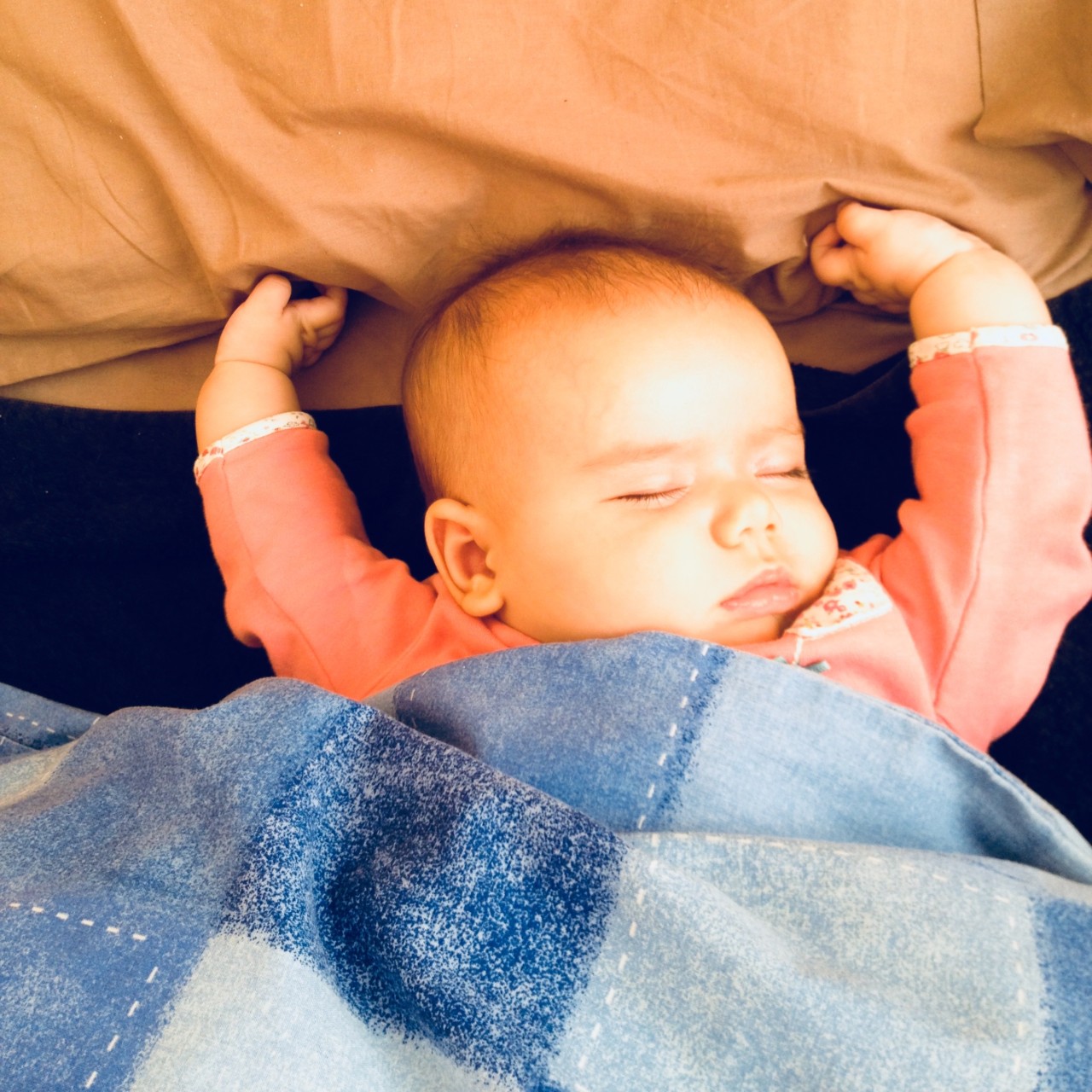

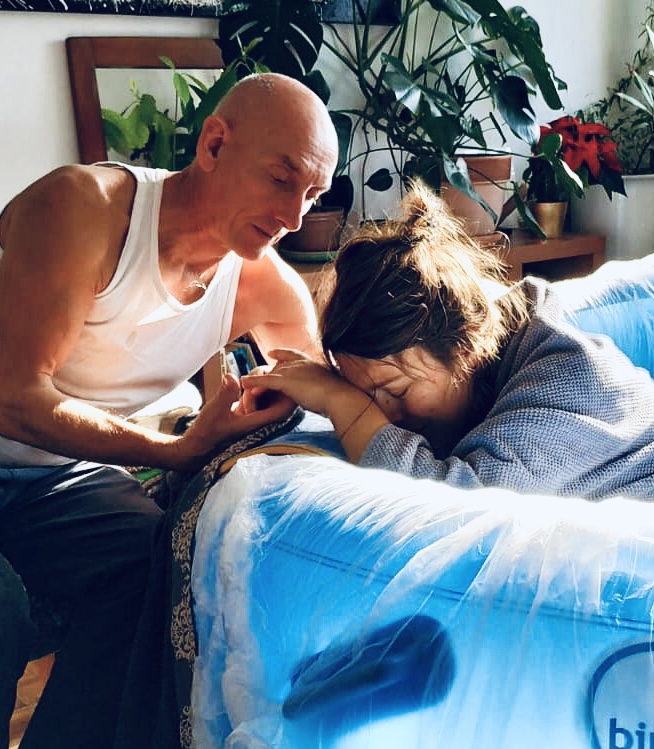
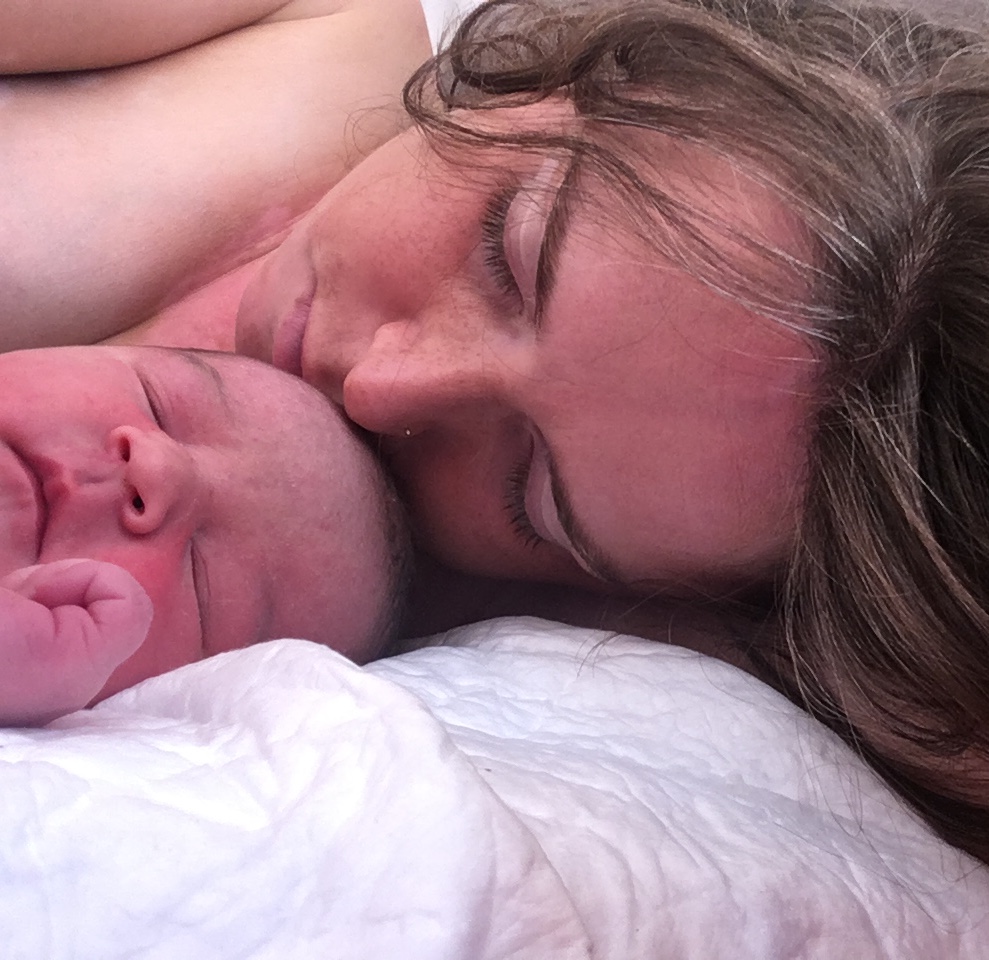
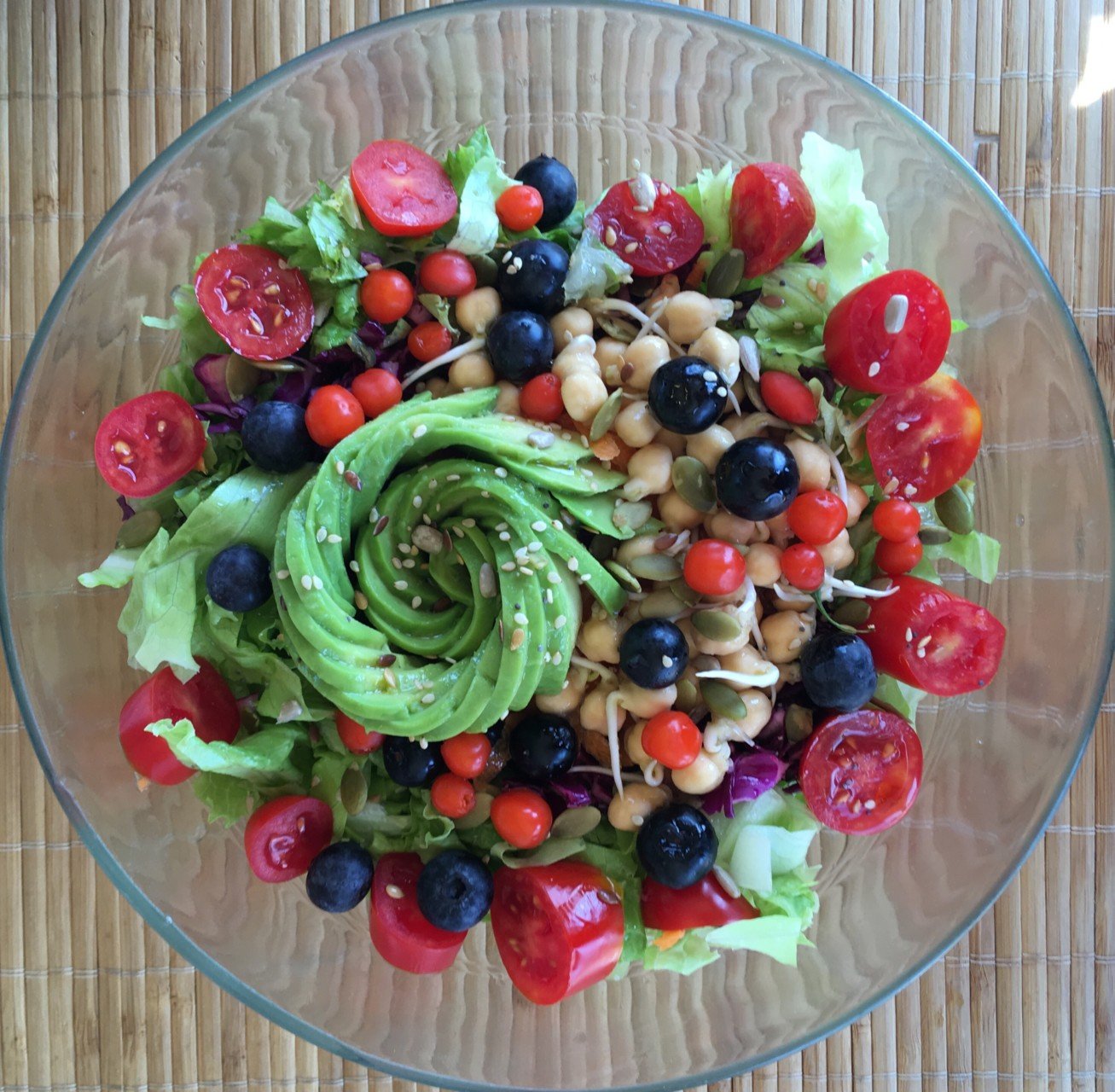


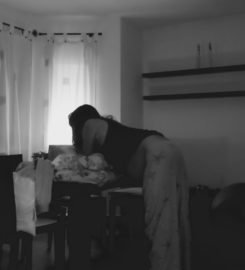
Thank you Forli & Asta sooo much!!!
Love & blessings from Argentina?
Sabrina Dávila
How small children at 11-12 months old can sweep, make dishes and prepare food?
I cannot believe it
Hi Tatiana, perhaps the idea was more that they can actively participate in these processes. I don’t think it was meant that they can prepare a 3 course-meal for dinner. But it is wonderful how much the babies even as small as that love being part of everything we do. Thank you so much for reading!
Oh I can totally see all children absolutely loving to “help” with “preparing food”, “sweeping” and “making dishes” the moment they find their feet!!!!
Kids really are amazing little helpers! They want to learn and be part of all we do. Thank you for taking time to read!